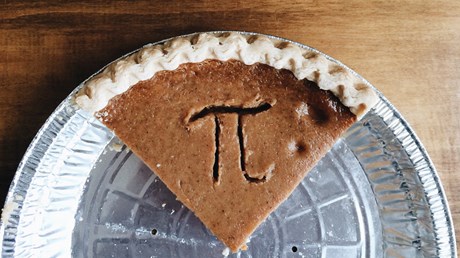The mind-boggling discoveries of computers and what we—and God?—still may never know.

For Pi Day this year, chew on this: Does God know all the digits in pi? Or does he know the answer to the myriad of unresolved mathematical problems out there today?
The great fifth-century African bishop Augustine of Hippo surely would have answered with a resounding yes, though other Christian thinkers might disagree. He also would likely have taken interest in recent mathematical discoveries made possible by today’s computers, discoveries that resurrect some of these unresolved problems.
In 2016, Swiss mathematician and evangelical Christian Peter Trüb’s computer spent 105 days calculating pi out to approximately 22.4 trillion digits—the most digits ever calculated. And this past January, Jon Pace, an electrical engineer and deacon at the Germantown Church of Christ in Tennessee, learned that his computer discovered the largest known prime number and the 50th known Mersenne prime, through an effort begun in 1996 that networks thousands of computers nationwide.
Primes are numbers greater than 1 that have no proper factors—the only numbers that can divide evenly into them are 1 and themselves (e.g., 2, 3, 5, 7, and 11). A Mersenne prime is named in honor of Marin Mersenne (1588–1648), a French mathematician, theologian, philosopher, and music theorist. These primes can be expressed as 2ⁿ – 1. In the expression for Pace’s Mersenne prime, n = 77,232,917. That’s one less than the number 2 multiplied by itself over 77 million times. Just to write it down would take up the space of about 10 novels the size of Anna Karenina. Traüb’s representation of pi is 1,000 times longer than that.
Why would anyone care to engage in projects like these? Traüb said one reason ...
from
http://feeds.christianitytoday.com/~r/christianitytoday/ctmag/~3/DIXmcnFuYz8/theological-life-of-pi-day-treat-numbers.html
No comments:
Post a Comment